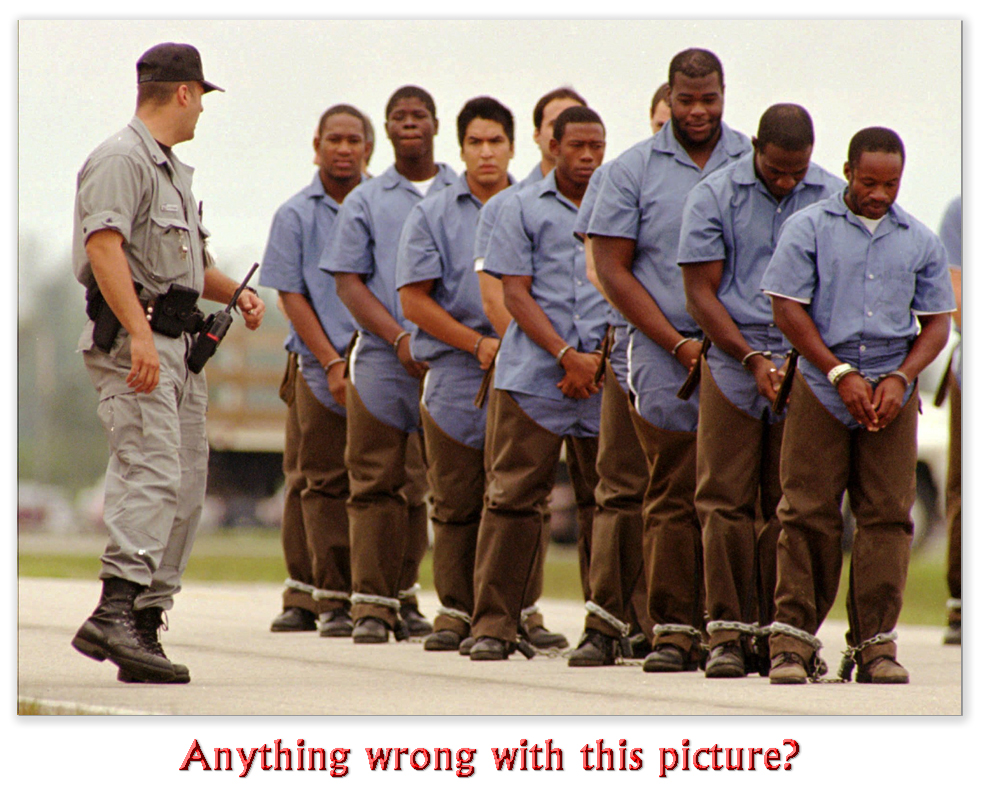We post news and comment on federal criminal justice issues, focused primarily on trial and post-conviction matters, legislative initiatives, and sentencing issues.
WE’RE SHOCKED! SENTENCING COMMISSION STUDY FINDINGS FEDERAL SENTENCING IS UNFAIR
 While this hardly comes as much of a comfort to you if you’re already serving one, a United States Sentencing Commission report issued last week found that, statistically speaking, your sentence is longer if you’re black than if you’re white, or if you’re a male instead of a female.
While this hardly comes as much of a comfort to you if you’re already serving one, a United States Sentencing Commission report issued last week found that, statistically speaking, your sentence is longer if you’re black than if you’re white, or if you’re a male instead of a female.
The report compares sentences handed down to similarly situated people between October 2011 and September 2016. Its key findings are
• black males continue to catch sentences that are 19% longer than those imposed on white males. The average black male sentence of about 92 months in 2007 has fallen to about 75 months, mostly because of changes in crack cocaine sentencing ranges, while white male sentences have risen slightly from 58 to 64 months. But when the data are adjusted for the effect of the Fair Sentencing Act, the gap between black and white sentences is unchanged since 2007.
• sentence departures and variances given for reasons other than assistance to the government are the principal culprits. During the period, black males were 21% less likely than whites to get a downward departure or variance, and when they did get one, their sentences were still 17% longer on the average. When the courts sentenced within the sentencing range, black male sentences were still 8% longer than those of whites.
• violence did account for any of the demographic differences in sentencing. Violent black male sentences were on average 20% longer than violent white male sentences.
• females received shorter sentences than males during the period, unchanged from every year since 2003. White and Hispanic women received 26% shorter sentences than males, and black women got 21% shorter sentences. These rates suggest while there is a racial sentencing disparity for women, its smaller than for men.
• non-citizens got longer sentences than similarly situated citizens, but education didn’t make a difference.
 The 2003 PROTECT Act (which defendants generally disliked) drove the racial disparity down to 6%, but after United States v. Booker – which made the Guidelines advisory – the difference between black and white male sentences increased by 10%. The pronounced disparity between white and non-white offenders may be partially attributable to the lack of a strict, rational sentencing scheme. When judges use their discretion, implicit racial and gender biases may show.
The 2003 PROTECT Act (which defendants generally disliked) drove the racial disparity down to 6%, but after United States v. Booker – which made the Guidelines advisory – the difference between black and white male sentences increased by 10%. The pronounced disparity between white and non-white offenders may be partially attributable to the lack of a strict, rational sentencing scheme. When judges use their discretion, implicit racial and gender biases may show.
US Sentencing Commission, Demographic Differences in Sentencing: An Update to the 2012 Booker Report (Nov. 13, 2017)
– Thomas L. Root

